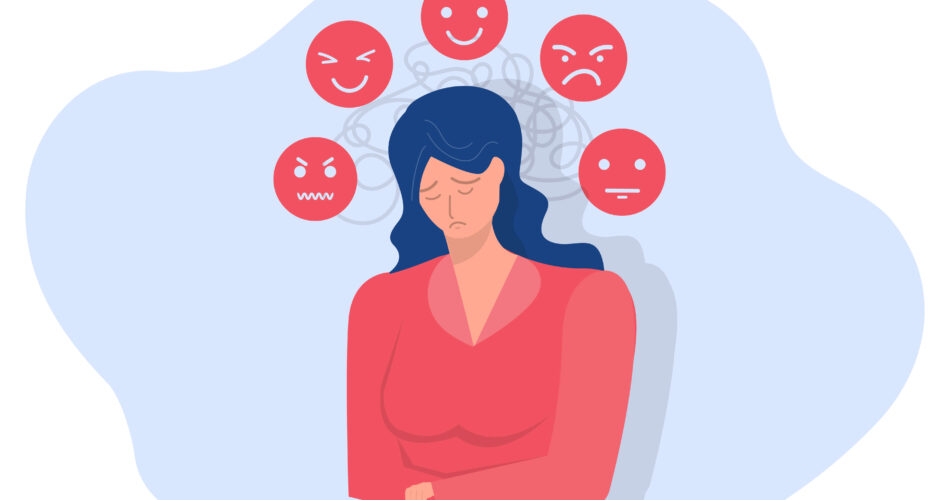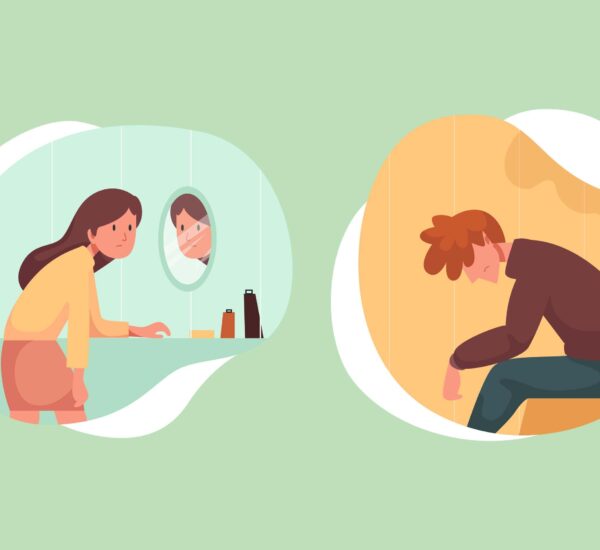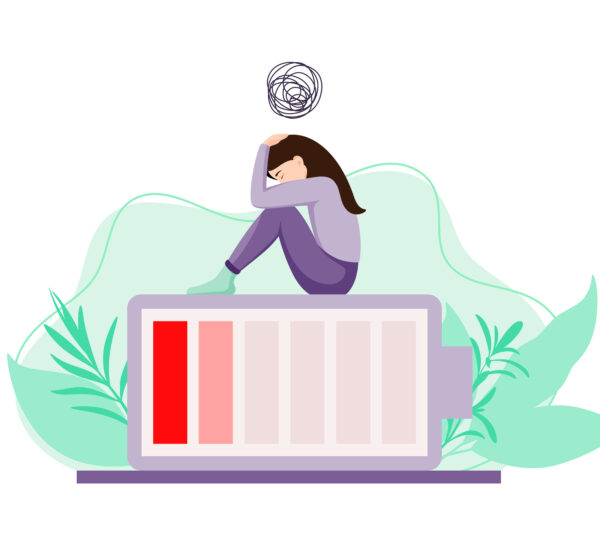Having a mental issue such as depression is a difficult matter to face. With its complex nature, most people are not well aware of its occurrence, leading to a stigma.
In today’s blog, let’s uncover its profound stages from its causes to symptoms. That way, more people will be aware of its effect to a patient’s overall health. Let’s begin!
What is Depression?
Depression, also known as major depressive disorder, is a serious mood disorder that goes beyond feeling sad or down. It is characterized by persistent feelings of sadness, hopelessness, and a loss of interest in activities that were once enjoyed. This mental condition can affect anyone, regardless of age, gender, or background.

Defining Depression
Understanding depression is recognizing that it’s more than just a temporary feeling of unhappiness. It is a pervasive condition that can significantly impact a person’s quality of life. Individuals with depression often experience a range of physical, emotional, and cognitive symptoms that can interfere with their daily functioning.
These symptoms can range from small to noticeable changes as it persists for a long time. With its ongoing cycle, the manifestations can hugely affect the patient’s day-to-day activities. Thus, leaving individuals unable to cope with their condition.
With such challenges, it is best to seek professional help to intervene with its progression. It is important to note that not everyone can experience the triggers that lead to their depressive state. That’s why it is important for an expert in the field to address the situation first to find the best solution per case.
Common Misconceptions About Depression

Unfortunately, there are several misconceptions surrounding this condition that can hinder understanding and support. One common misunderstanding is that it is simply a matter of willpower or a temporary bout of sadness. In reality, depression is a medical condition that requires proper diagnosis and treatment.
This mental condition is not a fleeting emotion that can be overcome with positive thinking or a change in mindset. It is a complex disorder that involves imbalances in brain chemistry and neurotransmitters. These imbalances can disrupt the brain’s ability to regulate mood, leading to the symptoms associated with depression.
Another misconception is that depression is a sign of weakness or a character flaw. In truth, depression is not a reflection of a person’s strength or character, but rather a complex interplay of genetic, environmental, and physiological factors. Let’s discuss them below:
Genetic factor: It can play a role in a person’s susceptibility to depression. Research has shown that individuals with a family history of depression are more likely to develop the disorder themselves.
Environmental factor: Factors, such as traumatic experiences, chronic stress, or a lack of social support, can also contribute to the onset of depression.
Physiologically factor: It is associated with changes in brain structure and function. Neurotransmitters, such as serotonin, norepinephrine, and dopamine, play a crucial role in regulating mood. Imbalances in these neurotransmitters can disrupt the brain’s communication pathways and contribute to the development of depression.
It is crucial to dispel these misconceptions to promote a more accurate understanding of depression and ensure individuals receive the help and support they need. By recognizing depression as a legitimate medical condition and understanding its multifaceted nature, we can reduce stigma and provide effective support to those who are struggling.
Recognizing the Symptoms of Depression
Identifying the symptoms of depression is essential for early detection and intervention. While every individual may experience depression differently, there are common signs and symptoms to look out for.

Physical Symptoms
In addition to emotional changes, this condition can manifest in physical symptoms. These physical manifestations can often be overlooked or attributed to other factors, making it important to consider them in conjunction with emotional symptoms when assessing for depression.
One common physical symptom of depression is changes in appetite or weight. Some individuals may experience a loss of appetite and significant weight loss, while others may turn to food as a coping mechanism and experience weight gain. Sleep disturbances are also common, with individuals either struggling to fall asleep or experiencing excessive sleepiness.
Furthermore, fatigue is a prevalent physical symptom of depression. Individuals may feel constantly tired and lack the energy to engage in daily activities. Aches or pains without a clear physical cause, such as headaches or muscle tension, can also be present.
Emotional Symptoms
The symptoms are perhaps the most well-known. They can have a profound impact on an individual’s emotional well-being and overall quality of life.
One of the primary emotional symptoms of depression is persistent feelings of sadness or emptiness. Individuals may feel a deep sense of despair that seems to linger for an extended period of time. Irritability is also common, with individuals becoming easily frustrated or agitated over minor issues.
Loss of interest or pleasure in activities that were once enjoyable is another emotional symptom of depression. Hobbies, socializing, and even basic self-care activities may no longer bring joy or satisfaction. Difficulty concentrating or making decisions is also prevalent, as having this mental illness can cloud a person’s ability to think clearly and focus.
Recurrent thoughts of death or suicide are serious emotional symptoms that should never be ignored. If you or someone you know is experiencing these thoughts, it is crucial to seek immediate help from a mental health professional or a helpline.
Behavioral Symptoms
Meanwhile, this mental illness can also affect a person’s behavior, often leading to significant changes in their daily life and interactions with others.
One common behavioral symptom of depression is social withdrawal. Individuals may isolate themselves from friends, family, and social activities that were once enjoyable. They may feel a sense of disconnection from others and struggle to engage in meaningful relationships.
It can also lead to a decline in productivity and motivation. Individuals may find it challenging to complete tasks at work or school, leading to a decrease in performance. This can further exacerbate feelings of low self-esteem and worthlessness.
In some cases, individuals with depression may engage in destructive behaviors as a way to cope with their emotional pain. Substance abuse, such as excessive alcohol consumption or drug use, may become a means of escape. Self-harm, although not always present, can also be a behavioral symptom of depression that requires immediate attention and intervention.
Recognizing these behavioral changes in oneself or a loved one is crucial, as they may indicate an underlying mental health concern that requires attention. It is important to approach individuals with empathy and understanding, encouraging them to seek professional help and providing support throughout their journey towards recovery.
Unraveling the Causes of Depression
The causes of depression are multifactorial and can vary from person to person. Understanding these causes is important for tailoring effective treatment approaches and providing support.
Depression is a complex mental health condition that can be influenced by a variety of factors. While the exact cause of depression is not fully understood, researchers have identified several key factors that contribute to its development. By exploring these factors in more detail, we can gain a deeper understanding of this pervasive condition.
Biological Factors
Biological factors, including genetics and brain chemistry, play a significant role in depression. Research has shown that individuals with a family history of depression may have a higher risk of developing the condition themselves. This suggests that there may be a genetic predisposition to depression.
In addition to genetics, imbalances in certain brain chemicals, such as serotonin and norepinephrine, have been associated with depression. Serotonin is a neurotransmitter that helps regulate mood, while norepinephrine is involved in the body’s stress response. When these chemicals are out of balance, it can contribute to the development of depressive symptoms.
Furthermore, studies have shown that structural changes in the brain, such as a smaller hippocampus or reduced activity in the prefrontal cortex, may be linked to depression. These brain regions are involved in regulating emotions and cognitive processes, and alterations in their functioning can impact mood and overall mental well-being.
Environmental Factors
Environmental factors, such as significant life events, trauma, or chronic stress, can also contribute to the development of depression. These factors can disrupt neurotransmitter function, alter brain structure, and negatively impact emotional well-being.
For example, experiencing a traumatic event, such as physical or emotional abuse, can have long-lasting effects on mental health. Trauma can alter the brain’s stress response system, making individuals more susceptible to developing depression.
Chronic stress, whether it be due to work, relationships, or financial difficulties, can also take a toll on mental health. Prolonged exposure to stress hormones can disrupt the delicate balance of neurotransmitters in the brain, leading to depressive symptoms.
Additionally, a lack of social support can contribute to feelings of isolation and loneliness, which are known risk factors for depression. Financial difficulties, housing instability, and exposure to violence or abuse can further increase the risk of developing depression.
Psychological and Personal Factors
Psychological and personal factors can make individuals more susceptible to developing depression. Low self-esteem, perfectionism, and a history of trauma or abuse can all contribute to the onset of depressive symptoms.
Individuals with low self-esteem may have a negative perception of themselves and their abilities, leading to feelings of worthlessness and hopelessness. Perfectionism, characterized by setting unrealistically high standards and being overly self-critical, can also contribute to the development of depression.
A history of trauma or abuse can have a profound impact on mental health. The emotional scars left by these experiences can make individuals more vulnerable to developing depression later in life.
Furthermore, negative thinking patterns and a tendency to ruminate on distressing thoughts or experiences can contribute to the persistence of depression. These cognitive processes can perpetuate a cycle of negative emotions and make it difficult for individuals to break free from depressive symptoms.
Understanding these various factors helps healthcare professionals tailor treatment plans that address the unique needs and experiences of each individual. By taking into account the biological, environmental, and psychological factors that contribute to depression, healthcare providers can develop comprehensive approaches that promote healing and recovery.
Coping with Depression

While depression can be overwhelming, there are various strategies and resources available to help individuals cope and regain control of their lives.
Seeking Professional Help
One of the most crucial steps in coping with depression is reaching out for professional help. Mental health professionals, such as therapists, counselors, or psychiatrists, can offer guidance, support, and evidence-based interventions.
These professionals can provide therapies such as cognitive-behavioral therapy (CBT), medication management, or help individuals develop coping skills and resilience.
Self-Care Strategies for Depression
In addition to professional support, self-care strategies can play a vital role in managing depression. Engaging in regular exercise, maintaining a balanced diet, prioritizing sleep, and practicing relaxation techniques can help alleviate symptoms and improve overall well-being.
Engaging in activities that bring joy and fulfillment, such as hobbies or creative outlets, can also provide a sense of purpose and enhance overall mood.
Support Systems and Depression
Building a strong support system is crucial for individuals coping with depression. Friends, family members, or support groups can provide understanding, empathy, and a safe space for open communication.
Sharing experiences and emotions with trusted individuals can help individuals feel less alone and provide opportunities for emotional healing and growth.
In Conclusion
Understanding depression is essential for individuals seeking fundamental knowledge and support. It is a complex condition that affects various aspects of a person’s life, including thoughts, emotions, and behaviors.
By recognizing the symptoms, understanding the causes, and implementing effective coping strategies, individuals can navigate the challenges of depression and work towards recovery and overall well-being.
No one should face depression alone, and seeking help is a courageous and vital step towards a brighter and healthier future.



